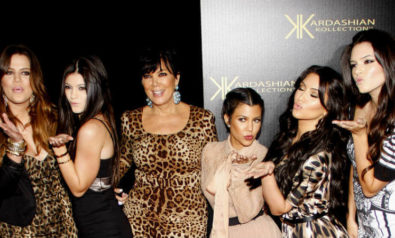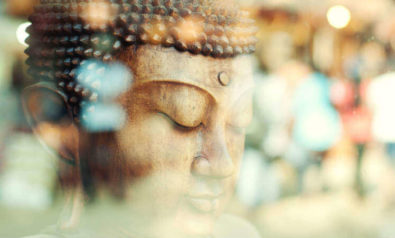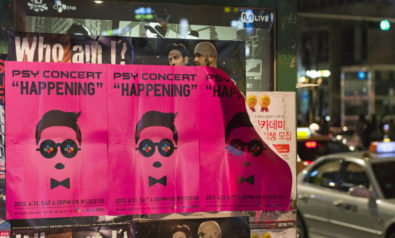While the concept of celebrity culture is not new, modern technology and a thriving gossip industry have put our fascination with fame in an overdrive.
Background
When you think of the nature of celebrity, almost infallibly the first thing that comes to mind is the concept of “15 minutes of fame.” Coined at the end of the transformative 1960s, “In the future, everyone will be world-famous for 15 minutes” became Andy Warhol’s best-known statement. It is completely insignificant that he allegedly admitted to never having used the phrase.
With the overwhelming upsurge in various types of mass media today, Warhol’s quip seems to ring truer than ever. Endless reality-TV shows, celebrity gossip magazines and websites with an annual revenue of more than $3 billion, and a global movie industry have created a conveyor belt of people who, in the words of cultural historian Daniel Boorstin, are “well-known for their well-knowness.” As these celebrities multiply and become more available to their audience, the cultural paradigm appears to shift toward the superficial and the sensationalist — a generational lament of loss of enduring value.
We have a desire to idolize. We compulsively follow the everyday lives of celebrities, from the tragic, like their heartbreaks and deaths, to the mundane, like what kind of coffee they drank that morning. The personal aspects of people’s lives matter more than their professional achievements. Preoccupation with the image is reaching unprecedented proportions: More than 40 billion photos have been shared on Instagram since it launched in 2010, with around 95 million uploaded daily by its 700 million users. Our fascination with the visual is the Mona Lisa for the digital age.
So, what effects does celebrity admiration, or worship, have on society?
Psychologists in the early 2000s described the syndrome (CWS) as having various degrees of severity. These range from entertainment-social, the usual interest in celeb gossip we share with friends; to intense-personal, where some may experience feelings of bereavement similar to losing a loved one in case of a favorite celebrity’s death; to borderline-pathological, which include conditions such as erotomania, where an individual has delusions that someone of a higher social status, very often a celebrity, is in love with them.
Studies have shown a correlation between adolescents who worship celebrities do not just mimic their style, but opt for plastic surgery more often than those who do not worship celebs. The American Society of Aesthetic Plastic Surgery estimates that between 33,000 to 65,000 children below 18 undergo cosmetic surgery each year, with nonsurgical cosmetic procedures ranging from 91,000 to 190,000 annually.
A study by UCLA’s Children’s Digital Media Center @ LA found that, in 2007, fame was “the number one value communicated to preteens on popular TV,” confirming in later findings that fame was the number one goal for their future. A survey cited by Teen Vogue shows that over 30% of 14 to 18-year-olds admitted to thinking they are likely to be famous one day. Becoming a celebrity seems to be viewed as a career choice, and with a long list of “wildly successful” celebrities who dropped out of school at 15 — including Virgin’s Richard Branson, singer Aretha Franklin and cult film director Quentin Tarantino — it is perhaps unsurprising that long-term achievements like pursuing a path of education pale in comparison with instantaneous, TV-grade opportunities.
But it’s not all bad news. Shira Gabriel, a psychologist at the University of Buffalo, told TIME that “Perhaps some people who don’t feel good about themselves and are not able to get what they want out of a real relationship because of a fear of rejection can feel a connection with a celebrity and get something positive out of that.” A parasocial relationship is, in a way, perhaps better than loneliness, and a way to cope with the pressures of everyday life. A study of Chinese students found that those who “worshipped” their teachers, family members or other “non-stars” had higher self-esteem and educational success, showing the positive side of having role models.
Why Does Celebrity Culture Matter?
Today, celebrity rules our world. Famous names and famous faces sell us products, push social change and tell us whom to vote for. Politics itself has become an exercise in showmanship. Ever since John F. Kennedy’s youthful glow won him the 1960 run against Richard Nixon, the figure of the celebrity politician has become more ubiquitous. To win elections, not only did you have to be intelligent, competent and diligent; you had to look presidential as well.
You can see the mass appeal in the likes of Vladimir Putin’s impressive public image campaign, or Narendra Modi’s sweeping popularity or indeed Donald Trump’s rise to power, which was made possible in large part by the persona created for him and popularized on The Apprentice.
While fame is not a new concept, its nature changed dramatically over the course of the 20th century. In the past, people were famous, or infamous, for being successful — the early Arctic explorers like Roald Amundsen and Ernest Shackleton, Amelia Earhart, Joanne D’Arc, Galileo, Ernest Hemingway. Today, when someone like Paris Hilton or Kim Kardashian shoots to fame after releasing a sex tape, where footballers’ wives and girlfriends are known for just that — being “WAGs”— we need to ask ourselves what value we assign to the people who dominate what is starting to feel like every aspect of our lives.
When The Beatles declared they were more popular than Jesus, were they aware of a cultural shift in public perception? After all, is Elvis ever less revered by the 20 million who have visited Graceland since it first opened in 1982 than Siddhartha Gautama, the historical Buddha?
In a culture where Grumpy Cat earns more than professional actors and sportsmen, we need to hold a mirror up to our social nature and try to understand this need to identify with someone, and to attempt to move past being trapped in what often feels like a cliquey, Mean Girls-style high-school cafeteria.
The views expressed in this article are the author’s own and do not necessarily reflect Fair Observer’s editorial policy.
Photo Credit: Thomas Hawk
For more than 10 years, Fair Observer has been free, fair and independent. No billionaire owns us, no advertisers control us. We are a reader-supported nonprofit. Unlike many other publications, we keep our content free for readers regardless of where they live or whether they can afford to pay. We have no paywalls and no ads.
In the post-truth era of fake news, echo chambers and filter bubbles, we publish a plurality of perspectives from around the world. Anyone can publish with us, but everyone goes through a rigorous editorial process. So, you get fact-checked, well-reasoned content instead of noise.
We publish 2,500+ voices from 90+ countries. We also conduct education and training programs on subjects ranging from digital media and journalism to writing and critical thinking. This doesn’t come cheap. Servers, editors, trainers and web developers cost money.
Please consider supporting us on a regular basis as a recurring donor or a sustaining member.
Support Fair Observer
We rely on your support for our independence, diversity and quality.
Will you support FO’s journalism?
We rely on your support for our independence, diversity and quality.













